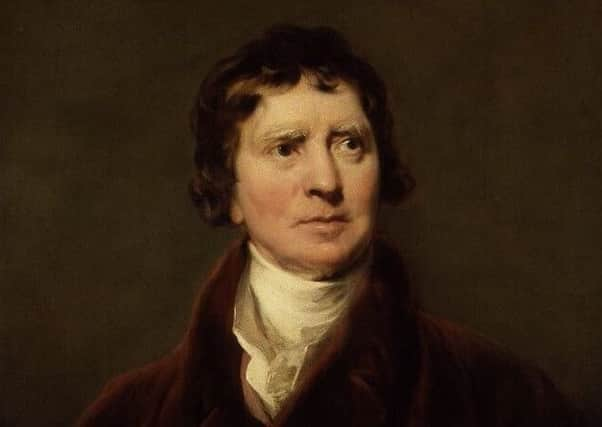Groundbreaking lecture to expose how Edinburgh profited from slavery


Sir Geoff Palmer, OBE, speaking during Black History Month 2018, will reveal that Scotland as a nation benefited disproportionately from the slave trade.
He will say that relative to population, Scots owned more slaves, plantations, and had a higher share of the transatlantic trade in plantation goods such as tobacco and sugar than England or most other European countries.
Advertisement
Hide AdAdvertisement
Hide AdSir Geoff, professor emeritus in the school of life sciences at Heriot-Watt University, will also argue that Edinburgh’s remarkable economic transformation in the late 18th century came at a heavy price.
The lecture, this evening at the Canongate Kirk in Edinburgh, draws on detailed research from the centre for the study of the legacies of British slave ownership at University College London.
It tells the story through many of the wealthy residents of the city’s New Town who were slave and plantation owners such as James Lindsay, 7th Earl of Balcarres as well as prominent citizens such as Henry Dundas, who campaigned against abolition.
Sir Geoff will say the New Town, so strongly associated with the Enlightenment, owes part of its existence to slavery.
Advertisement
Hide AdAdvertisement
Hide Ad“Being honest about how Scotland benefited from the slave trade is a crucial step on our journey to becoming a fair and inclusive society.
“While there has been much discussion in recent years about Glasgow’s role in this terrible trade, we now need to acknowledge many of Edinburgh’s most notable citizens owned and exploited tens of thousands of enslaved people.
“Our glorious New Town, seen by many as the physical embodiment of the Scottish Enlightenment, was, sadly, partly funded by the enormous profits derived from the enslavement of Africans.
Sir Geoff added: “Many wealthy residents were also handsomely compensated by the British government for the loss of their slaves, described as ‘property’, in the years following the abolition of slavery in 1833.”
Advertisement
Hide AdAdvertisement
Hide AdAdam Wilkinson, director of Edinburgh World Heritage, said the truth needed to be told.
“We cannot expect members of black and minority ethnic communities to feel a connection to our heritage unless we are honest about the past and the source of much of Edinburgh’s wealth in the 18th an early 19th centuries.
“Our mission as a charity is to connect people to their heritage in everything we do.
Mr Wilkinson added: “Through thoughtful debate and respectful discussion our hope is to deepen people’s understanding of both the true value – and cost – of Edinburgh’s remarkable heritage.”